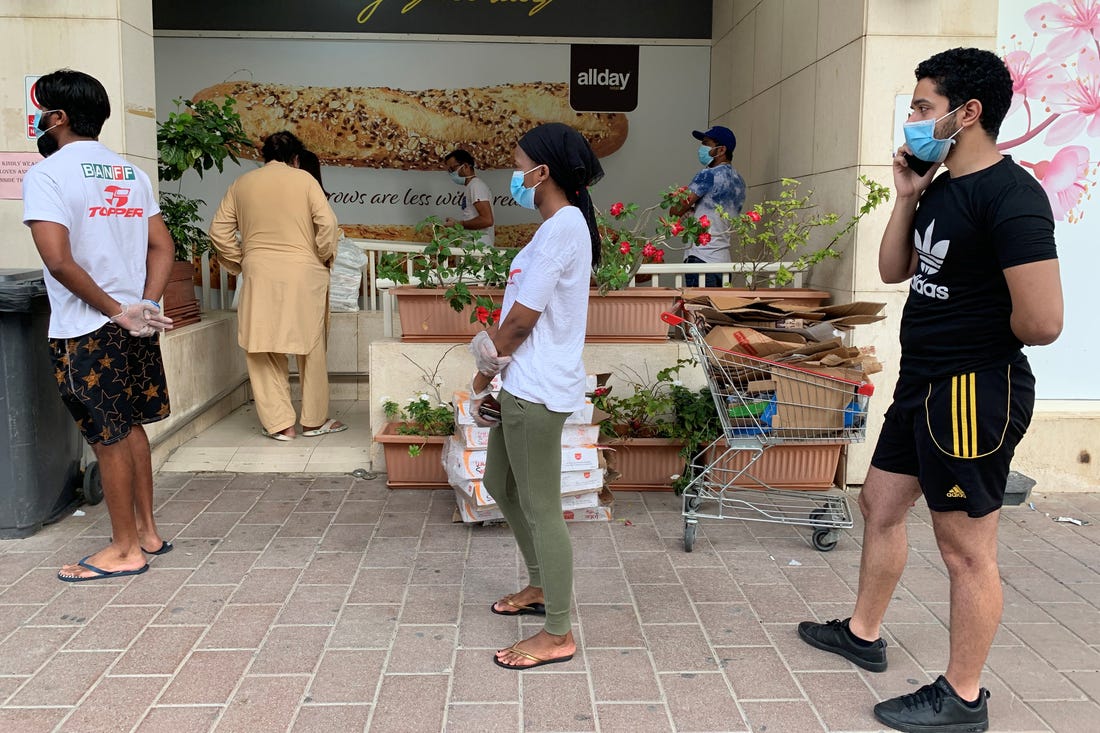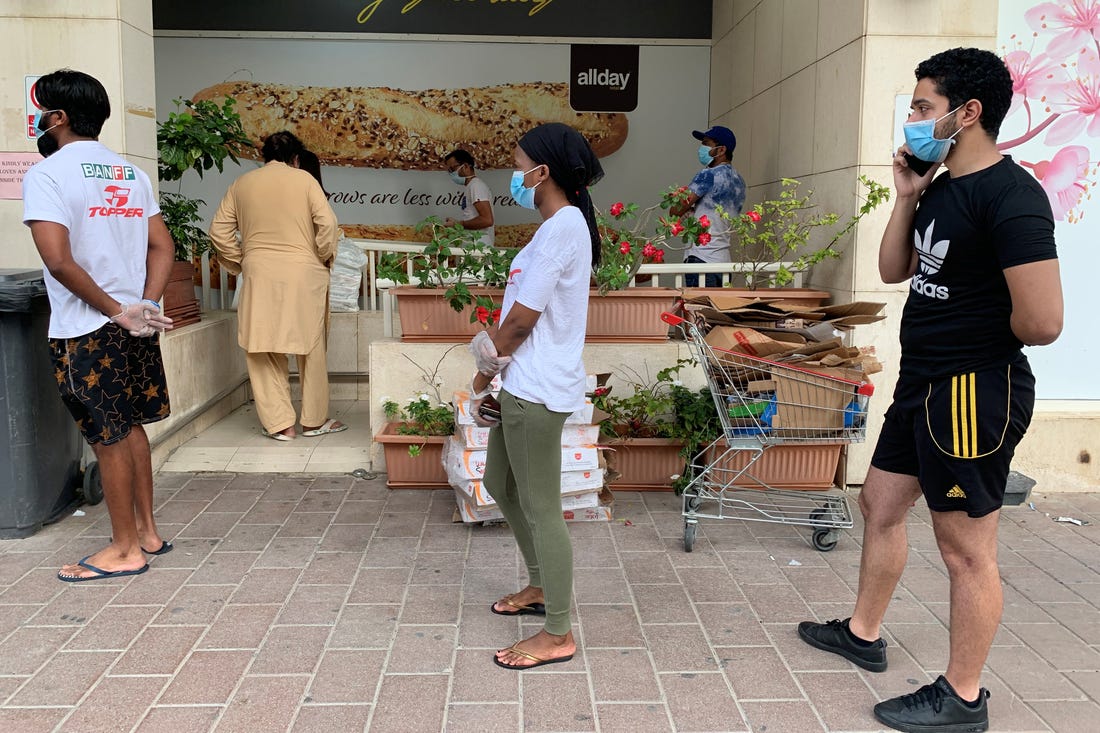UAE reports 3 COVID-19 deaths, 995 new cases, a jump from previous days
DUBAI: The UAE on Tuesday reported three deaths from COVID-19, a slight jump from the previous days, bringing the death toll to 416.
The Ministry of Health and Prevention said 995 new confirmed cases were reported, bringing the total number of infected cases since the pandemic began to 93,095, while the total deaths reached 413.
The ministry also said 1,076 cases recovered from coronavirus over the previous 24 hours, bringing the total to 82,538 cases.
Dubai Health Authority said it launched three new COVID-19 testing centers around the city, increasing the number of centers to five.
DHA launches 3 new #COVID19 testing centres pic.twitter.com/F4Hvi9IYeC
— هيئة الصحة بدبي (@DHA_Dubai) September 29, 2020
The centers will operate seven days a week, starting from 11am to 6pm, with a capacity of 550 examinations per day for each center.
The National Emergency Crisis and Disaster Management Authority (NCEMA) said between Sept. 1-15, 24,894 violations were detected in different regions of the UAE, and the most common violation was not wearing face masks, followed by violations regarding the number of passengers permitted per vehicle.
NCEMA said the 81 percent of the violations were made by Asian nationals and 19 percent were made by Arabs, with the highest violations detected in Dubai, followed by Abu Dhabi, Sharjah, Ajman, Fujairah, Umm Al-Quwain and finally Ras Al-Khaimah.
NCEMA also announced the return of sporting activities in the country with specific procedures and controls to prevent the spread of the virus.
“Protocols and guidelines have been developed to ensure a safe return to sporting activities based on studies, data and best global practices all under the supervision of medical teams with focal points managed by sport federations,” it said.
Dubai Police arrested two employees at one of the testing centers for allegedly “exploiting their positions” and for accepting bribes to falsify COVID-19 test results.
NCEMA said in a statement that they allegedly used images of negative examination samples previously preserved in the database belonging to other uninfected persons, in order to be able to enter Abu Dhabi.
The health ministry approved on Tuesday the provision of the first dose of the COVID-19 vaccine to employees working on the front lines at Sharjah International Airport in cooperation with the government of Sharjah, “as they are exposed due to the nature of their work.”
Dubai Economy emphasizes on the importance of following the precautionary measures and report any violation through the Dubai Consumer app.#UAE #Dubai #DubaiEconomy #DubaiDED #We_Are_All_Responsible
— اقتصادية دبي (@Dubai_DED) September 29, 2020
Meanwhile, Dubai Economy said it issued fines to 10 commercial establishments and gave warnings to 11 shops for not adhering to anti-COVID-19 measures, while 643 businesses were found to be compliant.
These included shops in a number of shopping centers around Dubai, as well as four gyms that were fined in cooperation with Dubai Sports Council.
Elsewhere, Kuwait reported 587 new COVID-19 cases, bringing the total to 104,568, while the death toll reached 607 after two new deaths were registered.
تعلن #وزارة_الصحة عن تأكيد إصابة 587 حالة جديدة، وتسجيل 538 حالة شفاء، و 2 حالة وفاة جديدة بـ #فيروس_كورونا_المستجدّ COVID-19 ، ليصبح إجمالي عدد الحالات 104,568 حالة pic.twitter.com/nlHnP0W5wM
— وزارة الصحة – الكويت (@KUWAIT_MOH) September 29, 2020
Oman recorded 528 new COVID-19 cases and 11 deaths, bringing total numbers to 98,585 and 935 respectively.
#Statement No. 196
September 29, 2020 pic.twitter.com/gBvT9vlr20— وزارة الصحة – عُمان (@OmaniMOH) September 29, 2020


UAE announces 626 new COVID-19 cases, a drop from previous dayUAE confirms 851 new COVID-19 cases, one death







